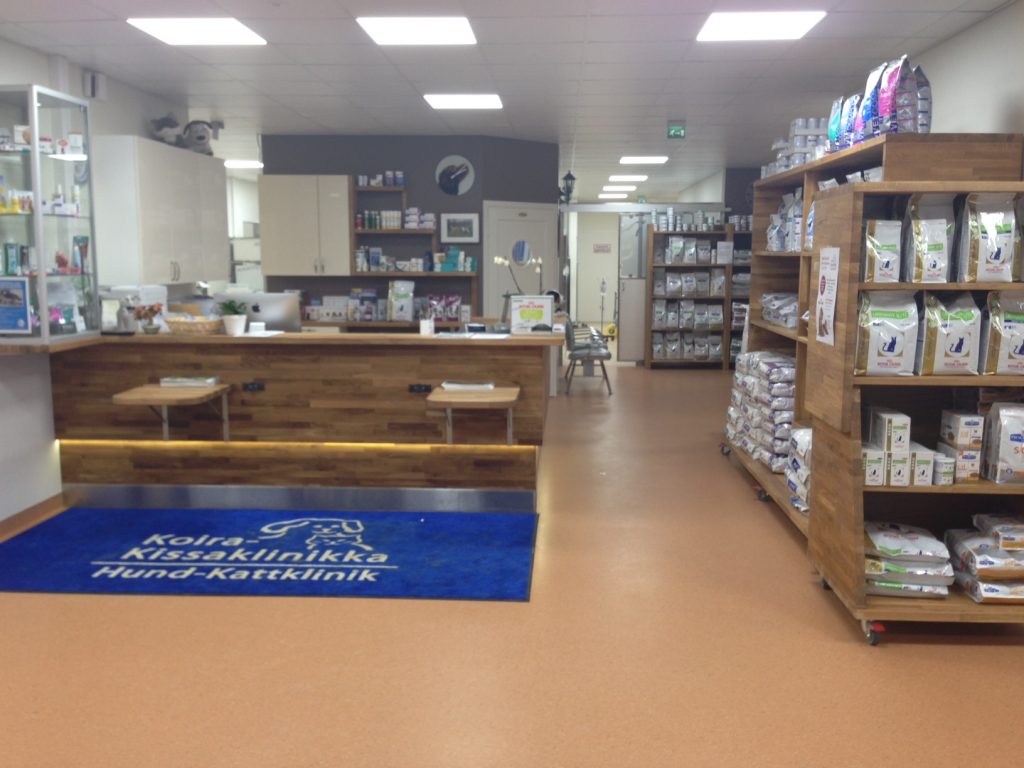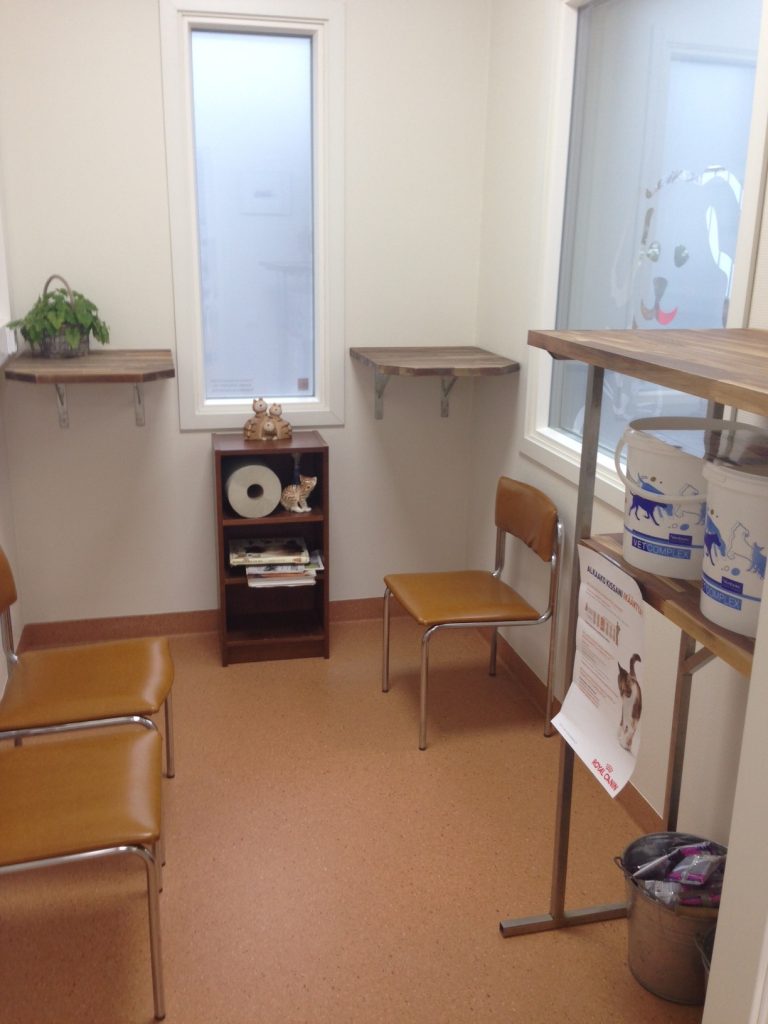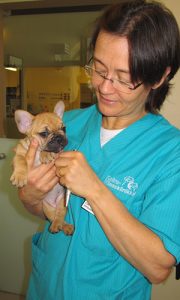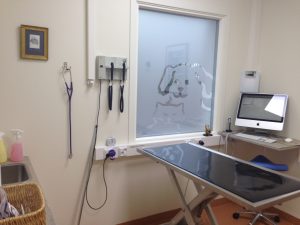Avoinna arkisin ma-to 8-20, pe 8-19.
La päivystys ajanvarauksella klo 9-17.

Our clinic works according to the appointment principle. We are open from Monday to Thursday 8.00 – 20.00hrs, on Friday 8.00 – 19.00hrs and on Saturday emergency duty by appointment 9.00 – 17.00hrs. There are no special hours to phone for an appointment. You can phone us anytime during opening hours.
You can call and leave a message to our veterinarians if you want to talk to the vet directly- they’ll call you back when they have a chance.
Immediately upon calling, you will be asked many questions concerning your pet and its problems. Based on this, together we can evaluate how quickly the pet has to receive care or be investigated, and on the other hand we can give you instructions on care and how to proceed, so that your pet will be as comfortable as possible until we meet at the clinic.
Please follow the instructions you receive over the phone carefully. A part of the examinations at the clinic requires among other things a short food fast before going to the clinic. You will also receive instructions on how to proceed with the patient before coming in for investigation. You will be informed of these matters when you book the appointment.

When you arrive at the clinic keep close watch over your pet, either on a leash or transport box, or on your lap. Even if your pet is nice to all, and does not have an infectious disease, this might not be the case with other patients. We try to make every visit here as agreeable as possible for you and your pet.
Cat patients have their own separate waiting room here at our clinic.
During the first visit you will be asked to fill in information concerning your pet on the patient card which will be made for it. In this computer based patient data-base we will register all your visits, investigations done with their results and care given, vaccines, etc. In the future it will not be necessary for you to remember (nor tell it all from the beginning) the healthcare history of your pet. We will have all the information carefully stored away in the computer memory!
We have a separate waiting room for our cat clients.

You can also use the scales in the waiting room to weigh your pet so that we can register its current weight on its patient card. If your pet has been treated for its current ailment somewhere else, please remember to bring along the previous care instructions and examination results!
Have you been called in already? If not, please be patient, thanks. It may be that the appointment schedule has been by-passed because of an emergency operation on a cat or pregnant dog which was hit by a car, and whose own life and that of the puppies depends on an immediate caesarean section. When the emergency is most acute, we can’t keep an eye on the clock. Thank for your cooperation even in unexpected circumstances!

If you are now with us for the first time with your pet, and your situation does not need immediate, quick veterinary procedures, you will soon face a pet health examination and the owners’ interview. Our veterinarian will carry out the investigations on the general state of health of your pet, and at the same time ask you about its behaviour and possible unusual behaviour and, of course, about the symptoms you may have observed in relation to this visit.
In the examination room the patient will be lifted onto an examination table, and when needed our small animal attendants will help ensure that the examination proceeds safely whilst on the table. It is good if you have taught your puppy, your pet, to feel comfortable even when on top of a table, and being examined on top of that.
We even have patients who, even being dogs of the same family, when they come in for vaccinations for example, compete to see who will be the first one to jump on the table and be the centre of attention! Well, jumping is not really necessary, but an open, friendly attitude towards life’s different situations can be taught to cats as well as to dogs. And we, the Clinics’ staff, do the best we can to make your visit here pleasant and without fear.
Sometimes your pet may be in such pain that it will only be possible to examine it slightly sedated (see Sedation of animal patient). Patients whom are wilful and not used to handling will wear a muzzle during the examination, so that it can be carried out reliably and thoroughly. Normally though, it seems to be so that you, as the pet owner, are by and large more tense about the whole examination event than the patient itself.
We try to tell you all the time what and why we are doing something, but please tell us, and ask, about whatever may be bothering you. There are no stupid questions, and sometimes even a seemingly unimportant thing may help considerably to explain the reasons for symptoms, or help in defining the most appropriate care.

